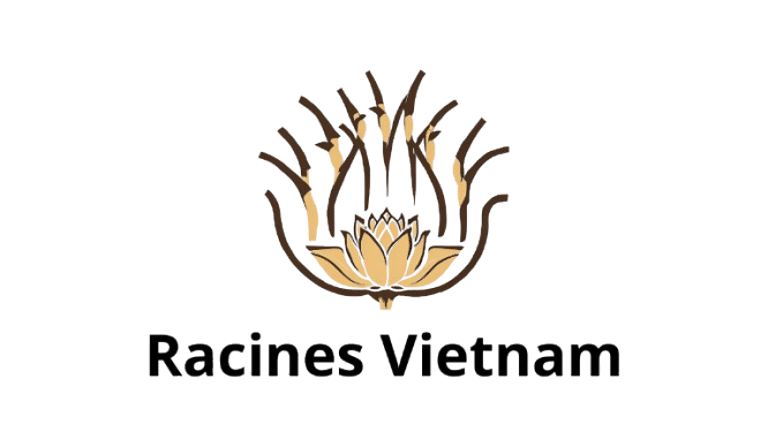“A blog created by an adopted Franco-Vietnamese for all those seeking to reconnect with their origins.”
Vietnamese Traditions for Adoptees | Reconnect with Your Cultural Roots | 2025 Guide
Discover Vietnamese traditions as an adoptee: Celebrate Tet, honor ancestors, explore authentic cuisine, and reconnect with your heritage. A journey to rediscover your cultural identity awaits!
1/31/20253 min read


Vietnamese Traditions Explained for Adoptees: Reconnecting with Your Cultural Roots
Introduction: Why Embracing Vietnamese Traditions Matters for Adoptees
For Vietnamese adoptees who grew up abroad, discovering the traditions of their birth country is more than a cultural curiosity — it’s a journey of self-discovery. Exploring Vietnam’s ancient customs offers powerful insight into your roots and helps weave a stronger connection between your identity and heritage.
Whether you were adopted at a young age or later in life, immersing yourself in these timeless practices — from vibrant Tet celebrations to ancestral worship — allows you to rediscover a deeper sense of belonging to the resilient spirit of the Vietnamese people.
1. Tet Nguyen Dan: The Vietnamese Lunar New Year, a Symbol of Family and Renewal
What is Tet?
Tet Nguyen Dan, commonly called Tet, marks the most significant and emotional holiday in Vietnam. Celebrated during the Lunar New Year, Tet symbolizes renewal, family reunions, and deep respect for ancestors — welcoming prosperity, good fortune, and happiness into the coming year.
Essential Tet Traditions:
Ancestor worship: Families light incense and make offerings at home altars, preserving a sacred connection between generations.
Li xi (Red envelopes): Children receive red envelopes filled with lucky money to usher in prosperity and success.
Traditional foods:
Banh Chung (Northern Vietnam) and Banh Tet (Southern Vietnam) made from sticky rice and mung beans.
Fresh fruits like watermelon and kumquats symbolizing abundance.
Important taboos:
Avoid sweeping the house (it’s believed to sweep away good luck).
Avoid arguments and negativity on New Year’s Day.
Why Tet Matters for Adoptees
Participating in Tet traditions gives adoptees a heartfelt opportunity to experience the importance of family, respect, and community in Vietnamese culture — essential pillars for understanding one's ancestral identity.
2. Ancestor Worship: Honoring Generations Past
The Role of Ancestor Worship in Vietnamese Life
Ancestor worship is a central spiritual practice where families maintain deep ties with previous generations. Every Vietnamese home traditionally includes an altar adorned with photos, candles, and offerings to honor deceased loved ones.
Key Moments for Ancestral Worship:
Giỗ (Death anniversaries): Families gather annually to honor and remember their ancestors.
Tet celebrations: Special prayers and offerings are made to ancestors during the Lunar New Year.
How Adoptees Can Integrate This Tradition:
Set up a small home altar with meaningful photos or items.
Attend ancestral ceremonies when visiting Vietnam.
Embrace the values of gratitude, respect, and continuity with one’s roots.
3. Vietnamese Cuisine: A Sensory Journey Into Identity
Why Vietnamese Food Matters
Vietnamese cuisine is a living expression of culture, history, and family — a vibrant blend of fresh ingredients, delicate flavors, and Asian influences.
Must-Try Traditional Dishes:
Pho: Aromatic beef noodle soup with coriander, lemongrass, onion, and ginger.
Banh Mi: A crispy baguette filled with pork, pickled vegetables, herbs, and spicy sauce.
Goi Cuon: Fresh spring rolls with shrimp, rice vermicelli, basil, and mint.
Ca Phe Sua Da: Sweet, strong iced coffee with condensed milk.
Bo Bun: Rice vermicelli topped with stir-fried beef, crispy spring rolls, bean sprouts, and peanuts.
Sticky Rice (Xoi): Savory versions served with crab, caramelized pork, or fried dough.
Mushroom Soups: Featuring wood ear mushrooms and silky tofu in rice noodle broth.
Vietnamese Curry: Coconut milk-based curry with chicken, lime, pepper, and lemongrass.
Vietnamese Omelet: Flavored with bean sprouts, sesame, and fish sauce.
Stir-Fried Noodles: Loaded with shrimp skewers, mushrooms, cucumber, and Asian herbs.
Fried Spring Rolls: Served with sweet-and-sour dipping sauces.
Roast Duck (Vit Quay): A caramelized delight often paired with fried noodles and pineapple.
Caramelized Pork Balls: Savory and slightly sweet, typically accompanied by crispy onions.
Boiling Soups: Hearty vermicelli soups with chives and sautéed vegetables.
How Food Builds Cultural Bridges
By tasting and cooking traditional Vietnamese dishes, adoptees can unlock sensory memories and forge a deeper emotional connection to their origins. Dining at authentic Vietnamese restaurants or preparing meals at home becomes a meaningful ritual of cultural reconnection.
Conclusion: Reclaiming Your Roots Through Vietnamese Traditions
Embracing Vietnamese traditions — from celebrating Tet to honoring ancestors and savoring authentic dishes — offers adoptees a path back to their heritage. It's more than understanding a culture; it’s healing a part of the soul that longs for belonging.
Whether you find your birth family or simply reconnect with the traditions passed down through generations, these experiences rebuild a bridge between your past and your present.
And you? Have you embraced any Vietnamese traditions to reconnect with your roots?
Share your journey and inspire others who are also seeking to rediscover their cultural heritage.
Main Menu:
Explorations:
Resources & Immersive Content
Community & Support
Legal & Languages
Contact & Social Networks
✉️ contact@racinesvietnam.com
📱 Instagram | Facebook | YouTube
©️ Copyright
© 2025 RacinesVietnam.com — Tous droits réservés
Site indépendant, créé sans code, hébergé par Hostinger
